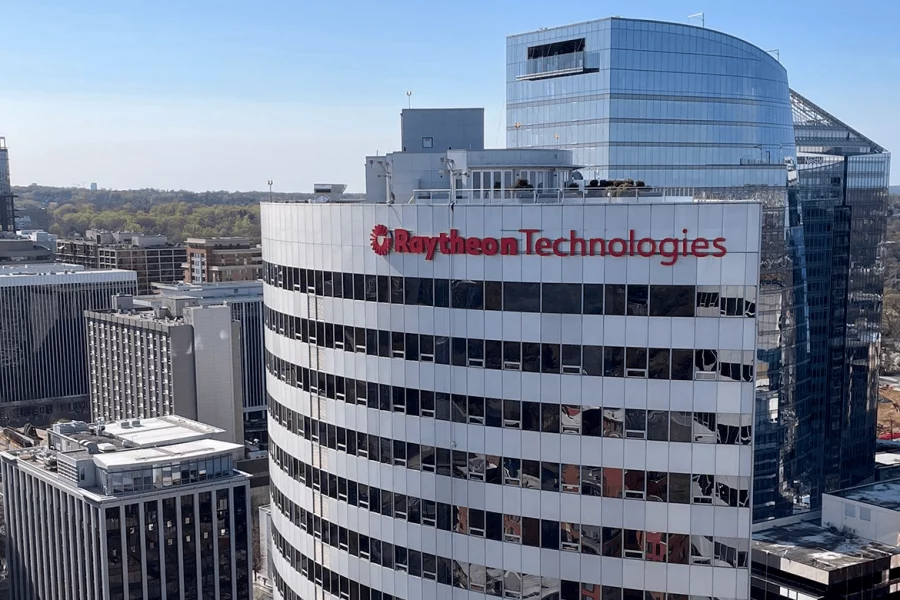Raytheon Technologies, the No. 2 defense contractor, will move its corporate headquarters to the Washington, D.C., area this fall, the company said. The announcement came just a month after Boeing announced plans to do the same. With their arrival, all of the five top defense contractors—including Lockheed Martin, General Dynamics, and Northrop Grumman—will have their headquarters in the National Capital Region, with four of them in Northern Virginia.
The move will give Raytheon executives and employees “agility” in supporting government customers “and serves to reinforce partnerships” that will advance defense technology, the company said in a press statement. The DC area boasts three international airports, rail centers, and major highways, offering “a convenient travel hub for the company’s global customers and employees.”
Raytheon’s new HQ will be in Rosslyn, part of Arlington, Va., just across the Potomac River from the District of Columbia and an eight-minute cab ride from the nearby Pentagon. Boeing will locate at existing company offices in Arlington a few miles further south and east; Northrop Grumman is near Tysons Corner, Va., about 12 miles from downtown D.C.; General Dynamics is in Reston, Va., some 21 miles away from downtown; and Lockheed Martin’s headquarters are in Bethesda, Md., about eight miles from the District boundary.
Raytheon is moving from its longtime perch outside Boston, Mass., near Hanscom Air Force Base—which manages many of the Air Force’s electronics programs—and a Massachusetts technology corridor. Raytheon acquired United Technologies and its Pratt & Whitney engines unit of Hartford, Conn., and became Raytheon Technologies in 2019, vaulting it to the No. 2 defense contractor behind Lockheed Martin.
Boeing is moving its headquarters from Chicago, having moved there from the Seattle, Wash. area—where its main factories are—in 2001. The given reason behind the previous move was to be more centrally located to Boeing’s extensive network of suppliers and to take advantage of the lower costs of operating in the greater Chicago area.
Industry officials have said Pentagon leaders have required more frequent face-to-face meetings with defense executives in recent years. Former Pentagon acquisition and sustainment chief Ellen Lord required such meetings quarterly or even monthly, and deputy defense secretary Kathleen H. Hicks is similarly keen on such engagements.
